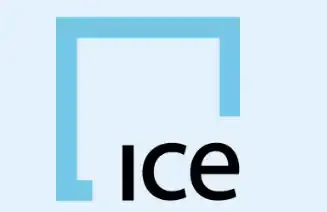VanEck submits the first Solana ETF application in the U.S. How far is approval?
Author: Nan Zhi, Odaily Planet Daily
On the evening of the 27th Beijing time, market news reported that VanEck submitted a Solana ETF application, igniting the token market of the Solana ecosystem. The price of SOL briefly surpassed 150 USDT, and leading ecosystem tokens such as WIF and RAY rose over 10% within an hour.
Subsequently, Matthew Sigel, head of digital asset research at VanEck, confirmed this news on the X platform, stating that VanEck has applied for a Solana ETF with the U.S. Securities and Exchange Commission (SEC). This new fund is named VanEck Solana Trust and is the first Solana ETF applied for in the United States.
Regarding the reason for applying for the Solana ETF, Matthew stated: "Solana is a competitor to Ethereum and can handle payments, transactions, gaming, and social interactions. The Solana blockchain operates as a single global state machine without the need for sharding or Layer 2, providing a better user experience. We believe that the combination of high throughput, low fees, strong security, and a robust community atmosphere makes Solana an attractive choice for an ETF, offering investors a versatile and innovative open-source ecosystem."
A Glimmer of Hope, but Approval Still Distant
Although VanEck's move is another significant milestone in Solana's development history, the actual approval may still be far off in terms of time and procedure.
Evgeny Gaevoy, founder of Wintermute, was the first to pour cold water on the situation, stating: "The likelihood of the SOL ETF being approved this year is almost zero. It is quite foolish to think that this will become a priority for the Trump administration; once you really see the inflow of funds into the ETH ETF, you'll understand that even if the SOL ETF is approved, the inflow will be even less." Evgeny added that Wintermute is a long-term supporter of SOL and ETH, but one should not overhype; being realistic is important, as the adoption of cryptocurrencies takes time.
Previously, Bloomberg analyst James Seyffart, who was highly focused on Bitcoin applications, also stated that if a new government takes over in the White House and the SEC completes personnel changes, related applications might be launched sometime in 2025, but they may also not materialize. James emphasized that after VanEck submitted the first U.S. SOL ETF, it is essential to pay attention to whether other issuers will follow suit.
A Look Back at VanEck and ETFs
As early as 2013, the SEC received the first Bitcoin ETF application, but it was not pursued due to an immature market.
In 2018, Bitcoin ETF applications began to reach their first peak, with VanEck being one of the pioneers in this wave. At that time, VanEck collaborated with SolidX to apply for a Bitcoin ETF, but it was rejected on February 27, 2019.
In October 2021, ProShares' Bitcoin futures ETF was approved and began trading, marking the first approved Bitcoin-related ETF in the U.S. In the same month, VanEck's Bitcoin futures ETF was also approved. However, its Bitcoin spot ETF was rejected the following month, and the Bitcoin spot ETF did not receive SEC approval until three years later, in January of this year, as everyone knows.
The road to the birth of the Bitcoin ETF has been quite bumpy, with every significant progress needing to be pushed forward year by year. The Solana ETF shows a glimmer of hope, but the road to approval is similarly distant.
Commodity or Security
The reason why the Ethereum spot ETF was considered difficult to pass approval in the market is primarily due to the unresolved question of whether Ethereum should be classified as a commodity or a security.
The reason the 19b-4 filing for the Ethereum spot ETF was able to pass in May was that various applying institutions modified their terms to ensure that ETH would not involve staking and earning operations. Additionally, last week (June 18), the SEC announced the conclusion of its investigation into Ethereum 2.0, which undoubtedly represents a phased victory and sends a positive signal to the outside world: there may be a new shift regarding the staking of POS tokens, and tokens previously deemed securities may be recognized as commodities in the future.
Although the commodity and security attributes of other cryptocurrencies remain unresolved, which is an important factor hindering the approval of ETFs, it does not prevent leading institutions like VanEck from applying in advance.
In fact, regarding the above, Matthew Sigel, head of digital asset research at VanEck, expressed his views in a post: "Why do we believe SOL is a commodity like BTC and ETH? We believe the native token SOL functions similarly to other digital commodities, used for paying transaction fees and computational services on the blockchain. Like ETH on Ethereum, SOL can be traded on digital asset platforms or used for peer-to-peer transactions. The decentralized nature, high utility, and economic viability of SOL align with the characteristics of other mature digital commodities, further strengthening our belief that SOL could become a valuable commodity."
However, this is merely VanEck's perspective, and whether the SEC will approve the SOL spot ETF in the future remains to be seen.
Maintain Cautious Optimism
Although based on the current market situation, the approval of the Solana ETF is still a long way off, trading in the crypto market relies more on speculative expectations, and it does not require waiting for news to materialize before starting to rise. Every significant development could potentially become a wave that drives the rise of Solana ecosystem tokens. Of course, during this process, market fluctuations can be significant, and sharp price movements are frequent. Odaily reminds investors to pay attention to risks and use leverage cautiously.



























